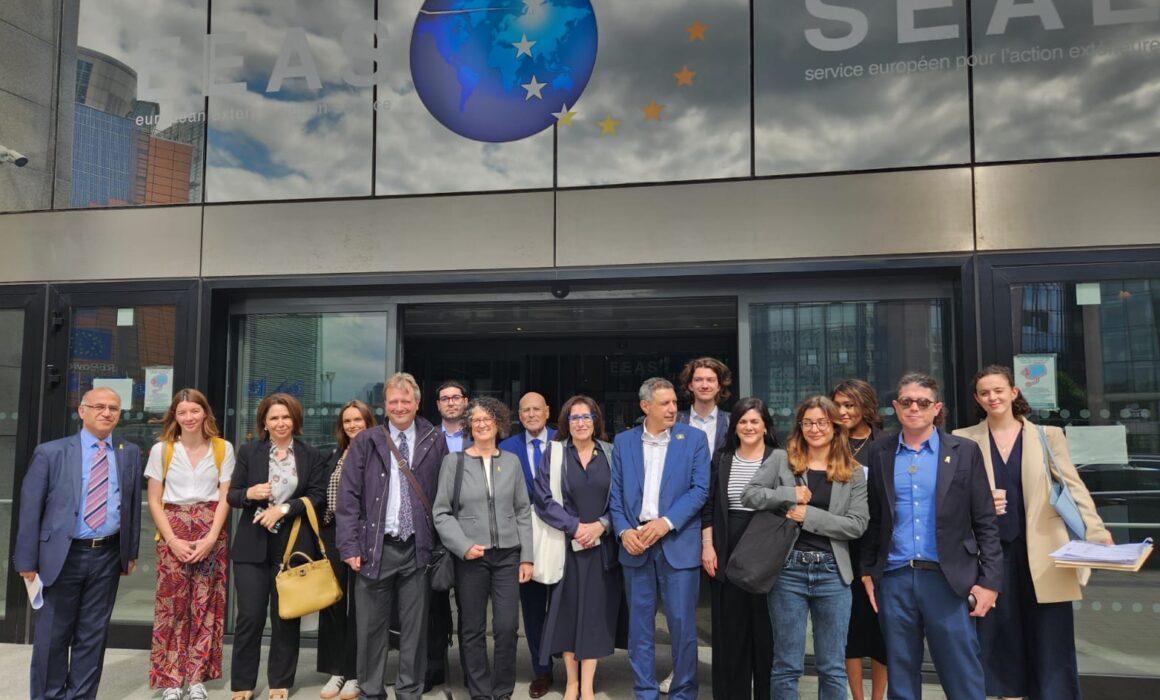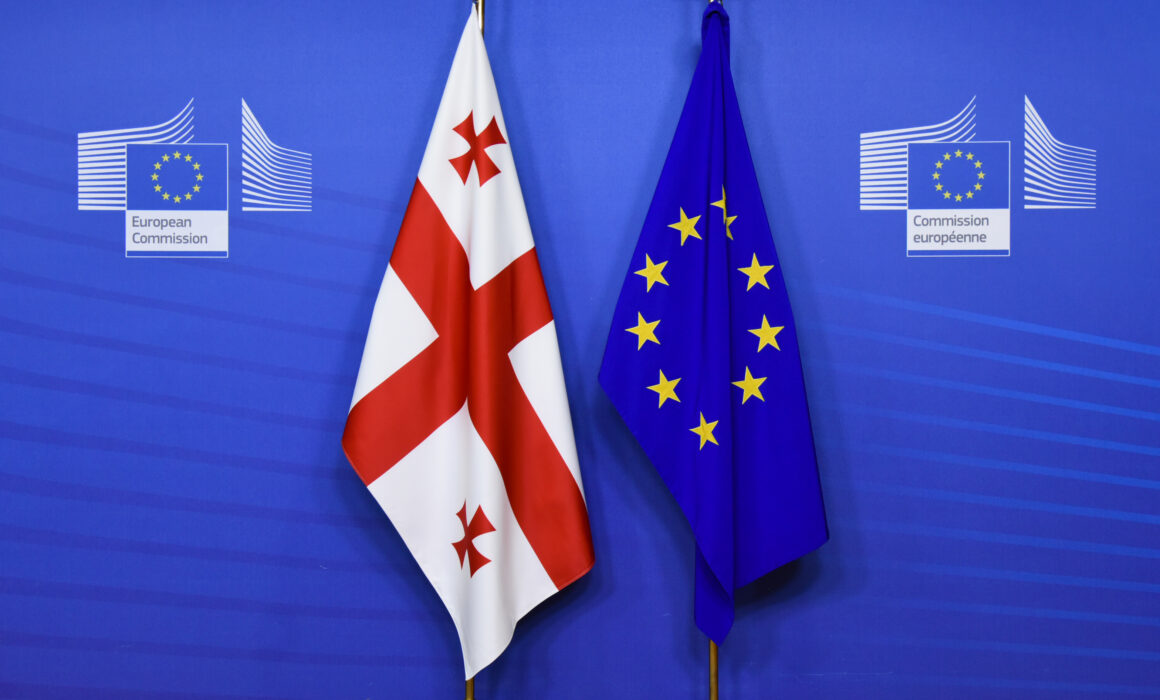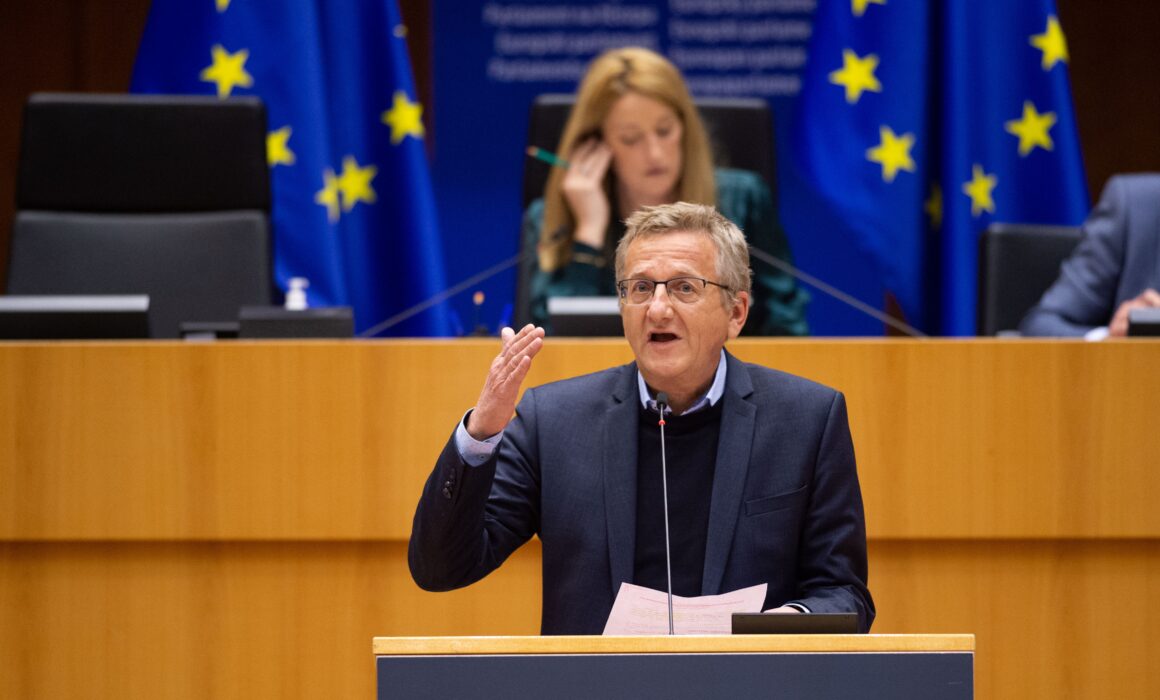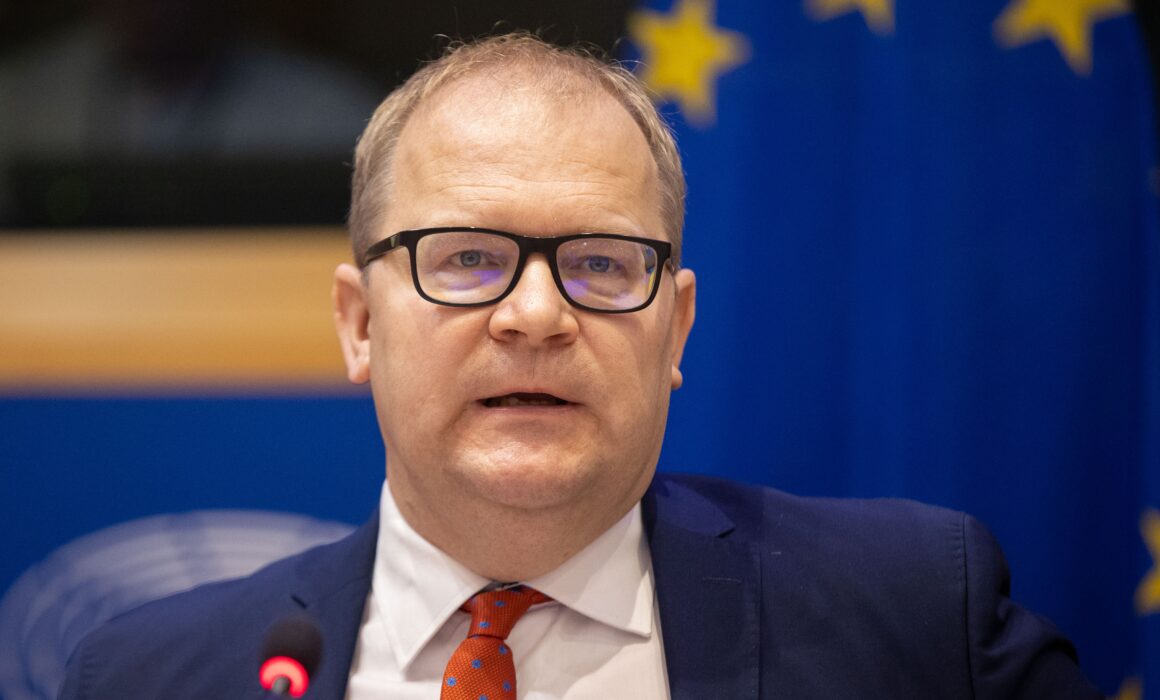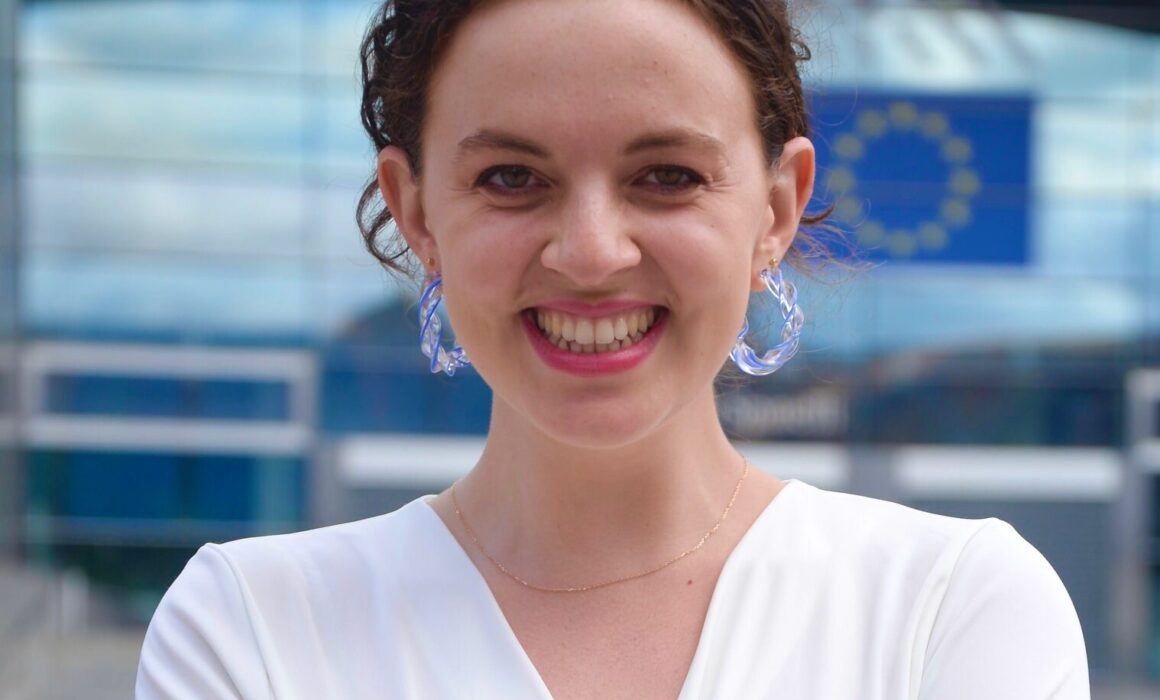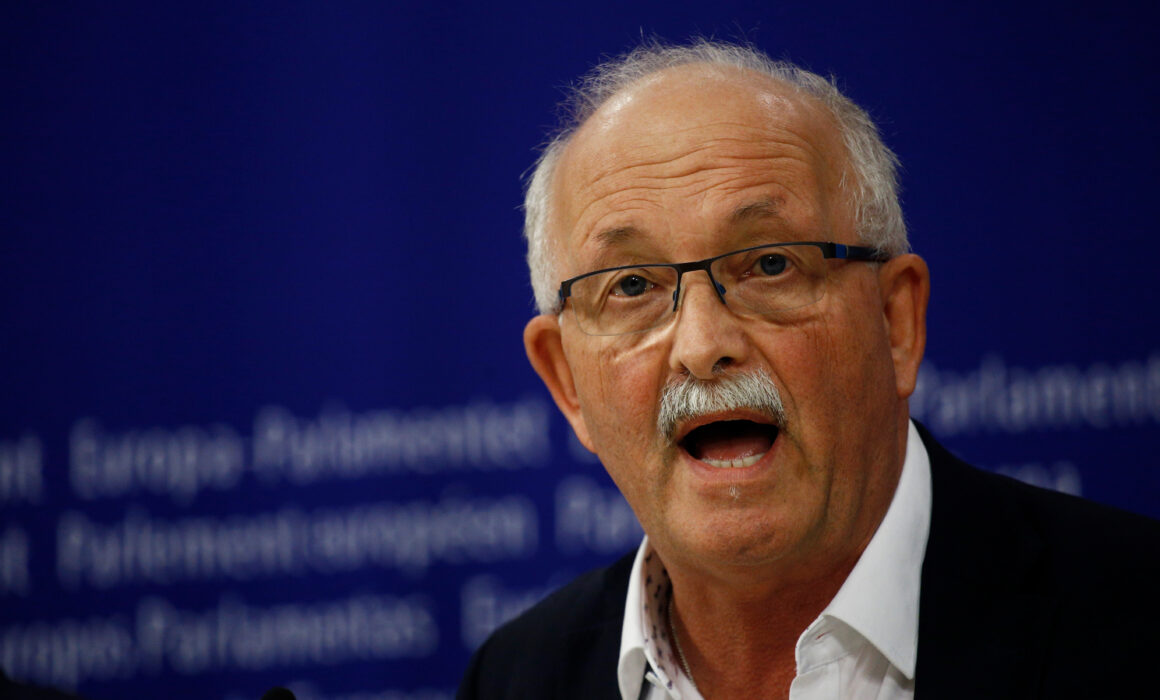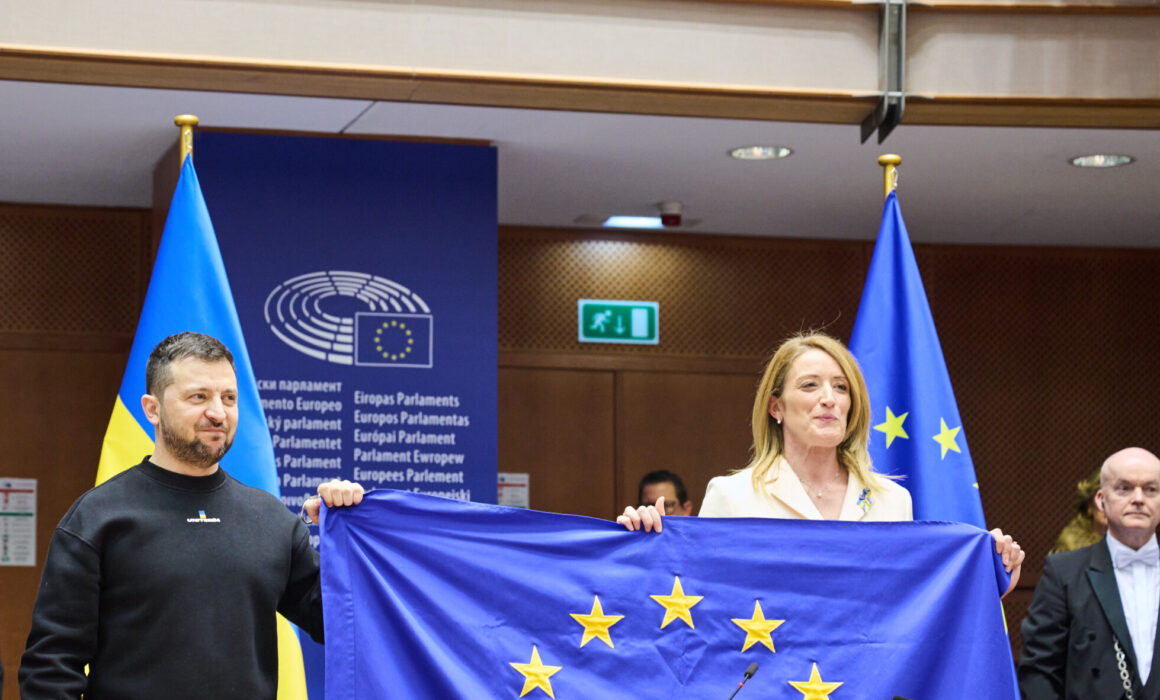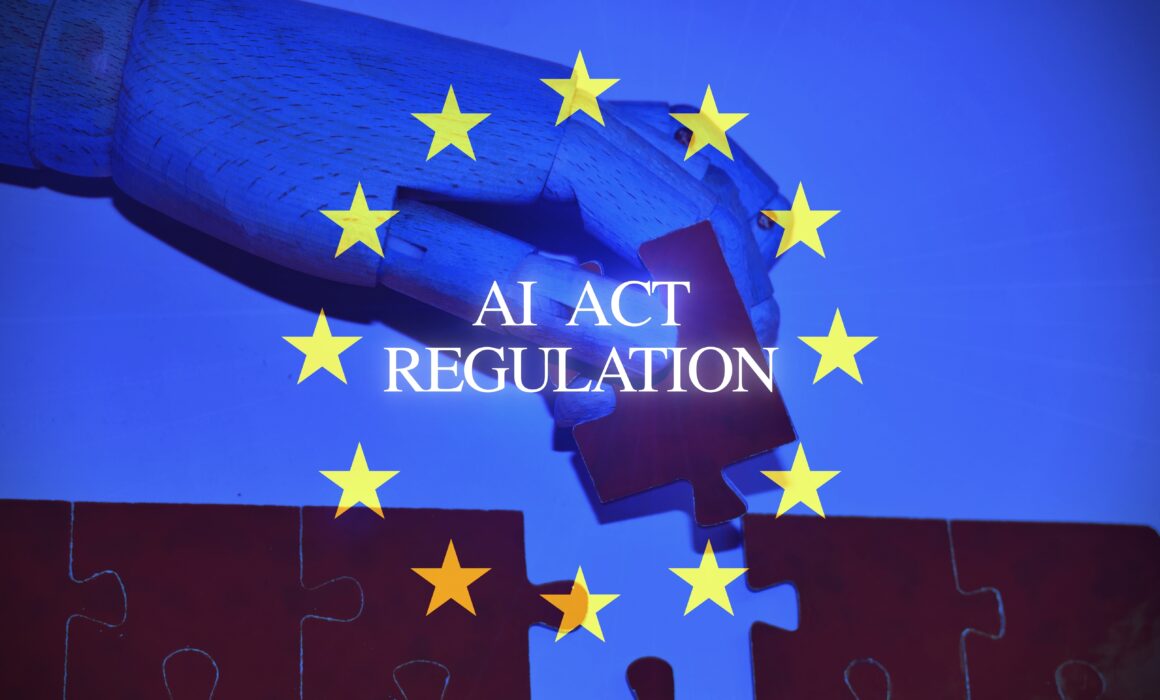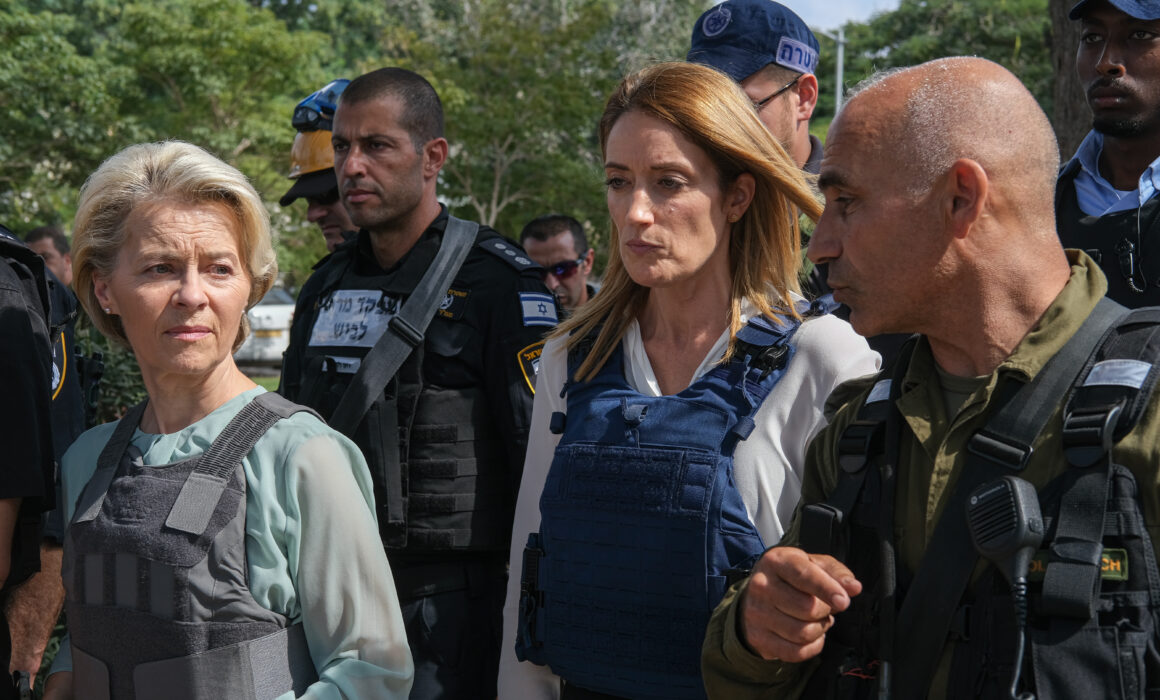“Borrell’s statements are just empty words”: Daughter of Iran prisoner wants stronger EU action
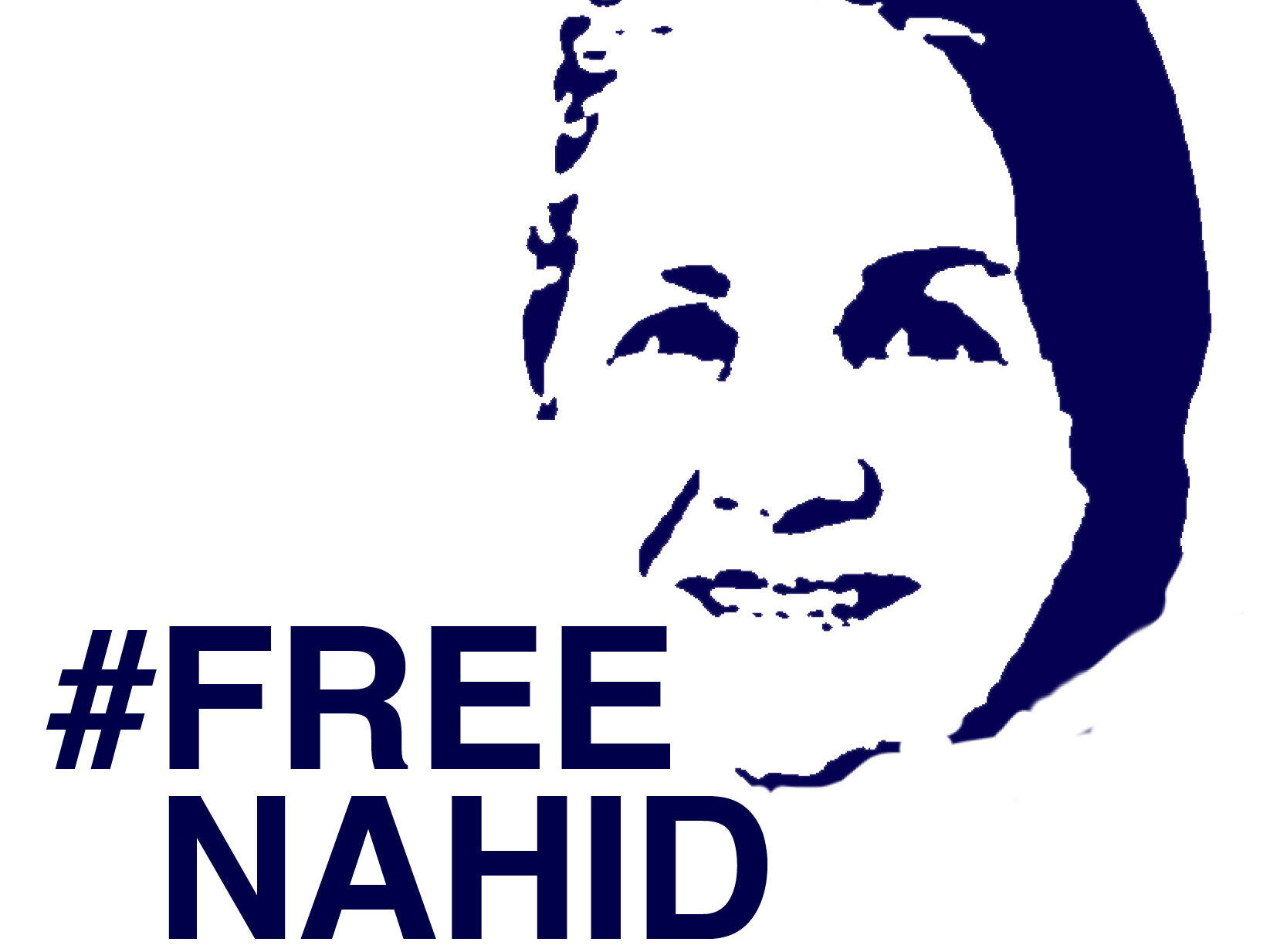
- Date published: 28 March, 2023
Ms. Claren, your mother, Nahid Taghavi, is currently in an Iranian prison. Can you tell us what happened?
My mother is a dual German and Iranian citizen. She has been held in Evin prison in Tehran since October 2020. My mother was born in Iran in 1954 but came to Italy aged 16. She studied architecture in Florence and then went back to Iran afterwards. At the end of the 1970s, she met my father, he was also Iranian, and they both joined an Iranian student association. In 1980, shortly after I was born, my father died in a car accident. My mother and I emigrated to Germany a short time later.
About 15 years ago, my mother started travelling to Iran again from time to time because her siblings live there. There were never any problems, she travelled back and forth between Germany and Iran.
"My mother was arrested by the Islamic Revolutionary Guard"
Mariam Claren, daughter of Nahid Taghavi Tweet
Since about 2016, she spent several months per year in Tehran. She flew to Iran again in the summer of 2019 and was planning to come back in March 2020. Then the Corona pandemic came, and my mother stayed in Iran with her family. When the pandemic lasted longer than expected, she planned to come back home at the end of October 2020. But on 16 October 2020, she was arrested by the Islamic Revolutionary Guard.
This is important to mention because there are two intelligence services in Iran, the normal one, which reports to the government, and the other which is the intelligence service of the IRGC. Most dual nationals held in Iran are arrested by the Revolutionary Guard’s Intelligence Service.
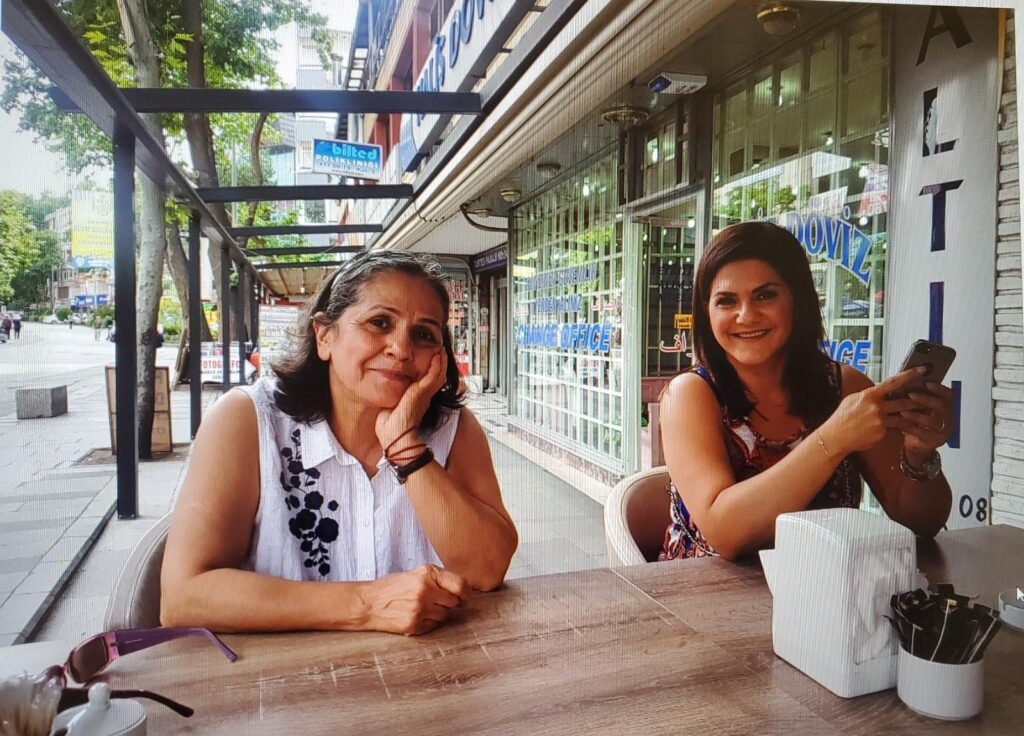
There are hundreds of reports and evidence that Iran is organising ‘show trials’ of human rights defenders and activists. How did the trial go for your mother?
In May 2021, after seven months of incommunicado detention, my mother was transferred to the women’s wing of Evin prison, where between 20 and 60 other political prisoners are held. Two trials took place, one in April and one in June 2021. In August, she was sentenced to ten years and eight months in prison. Her lawyer tried everything, but the judge didn’t care. This was a pure sham. In the end, he pronounced exactly the sentence that the security apparatus – in this case the Revolutionary Guard – had wanted.
The Islamic Republic knows no rule of law. Even the list of defence lawyers has to be pre-approved by a prosecutor. In our case, thanks also to the publicity I had managed to create, an independent lawyer was allowed into the courtroom. My mother says that it was good to know that there was someone at her side who really wanted the best outcome for her.
In other words, she is hostage of the regime and part of Iran’s bargaining chip with Western powers?
At first, I didn’t want to believe that, because it simply didn’t fit in with my thinking. But as the months went by, I realised that her German citizenship obviously played a big role in her arrest. I then networked with other families of imprisoned dual citizens, and it turned out quickly that there was a pattern here. With a German citizen who has a past as an activist, it was wonderful for the regime to create a file. So, my mother became a very interesting pawn.
"I realised that her German citizenship obviously played a big role in her arrest"
Mariam Claren, daughter of Nahid Taghavi Tweet
Has Germany, has the EU provided any kind of assistance to your mother?
Iran does not release anyone from citizenship. Consequently, someone who was originally Iranian will always remain Iranian, at least in the eyes of the regime. Even I who don’t have an Iranian passport and have never left Germany other than for travel cannot enter Iran with my German passport.
A dual citizen like my mother is considered Iranian and just that. The Vienna Convention and the right to consular assistance are being disregarded.
After I became aware that my mother had been detained, I informed the German Foreign Office. They then contacted their embassy in Tehran. Also immediately, I started a public awareness campaign. At first, the Foreign Office told me that they would prefer to try quiet diplomacy. But I knew this would not do the trick.
Today, everyone regrets that they tried “the nice way” first. Of course, staff from the German Embassy in Tehran went to Evin Prison to bring my mother her medicine. They also tried to attend her trials but were not allowed into the courtroom. Even today, I am in constant exchange with the Foreign Office. At least once a week they assure me that they are working at all levels and through the highest diplomatic channels, doing everything they can.
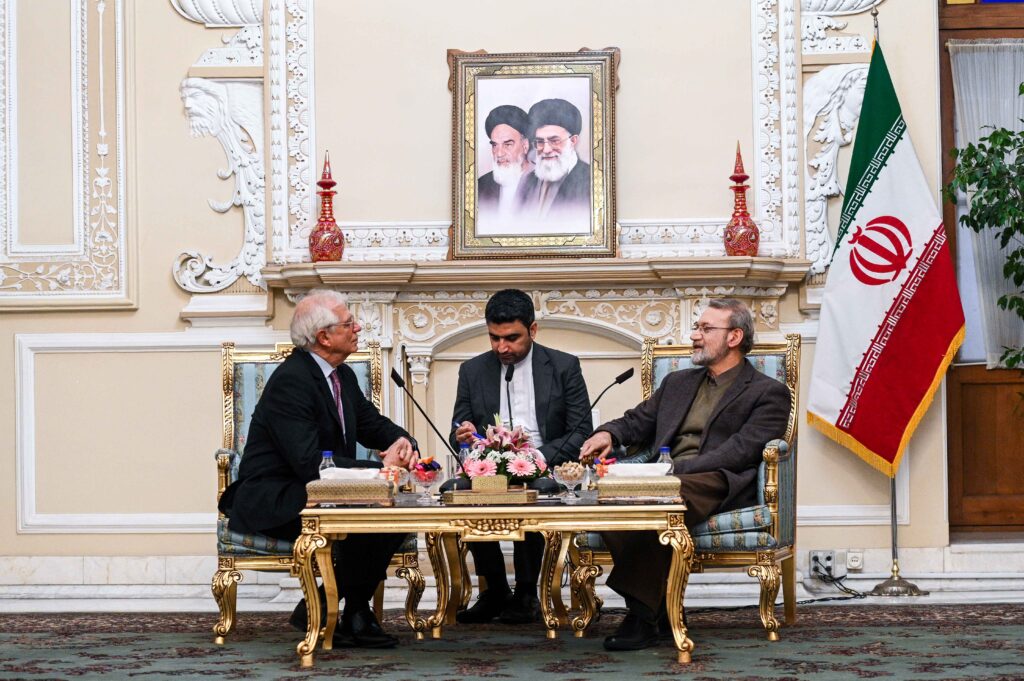
In your opinion, is that all they can do?
I have to believe it, what else can I do? But that doesn’t stop me from my public relations work because I believe that pressure is absolutely necessary for something to move. What is happening behind the scenes I do not know. But my mother has now been in jail for two and a half years now, and apart from a medical holiday of some weeks last summer, there has been no progress in her case.
On the contrary: There was a mass amnesty a few weeks ago and a lot of political prisoners were released. My mother was not among them although she fulfilled all the conditions for release. And the officials said that the reason was that she is a German citizen. So suddenly, her German passport was recognised by the regime. Before that, we had been told for years that she was Iranian and that the German embassy should not meddle in the case.
"We don't negotiate with terrorists! But if you look at the history of the Islamic Republic since 1979, this is something that has been done over and over again."
Mariam Claren, daughter of Nahid Taghavi Tweet
Were there any signals from Tehran on which conditions they would agree to release her?
Not that I know. But only the Foreign Office can answer that. It is also a fact that in all other cases of released dual nationals, the Iranians got something in return. However, it is unclear what Iran wants from Germany in my mother’s case. Maybe it’s about money or about a prisoner exchange. I find it inconceivable that one has to even consider such a scenario.
When ISIS or Al-Qaeda tried something like this, everyone was very clear: We don’t negotiate with terrorists! But if you look at the history of the Islamic Republic since 1979, this is something that has been done over and over again.
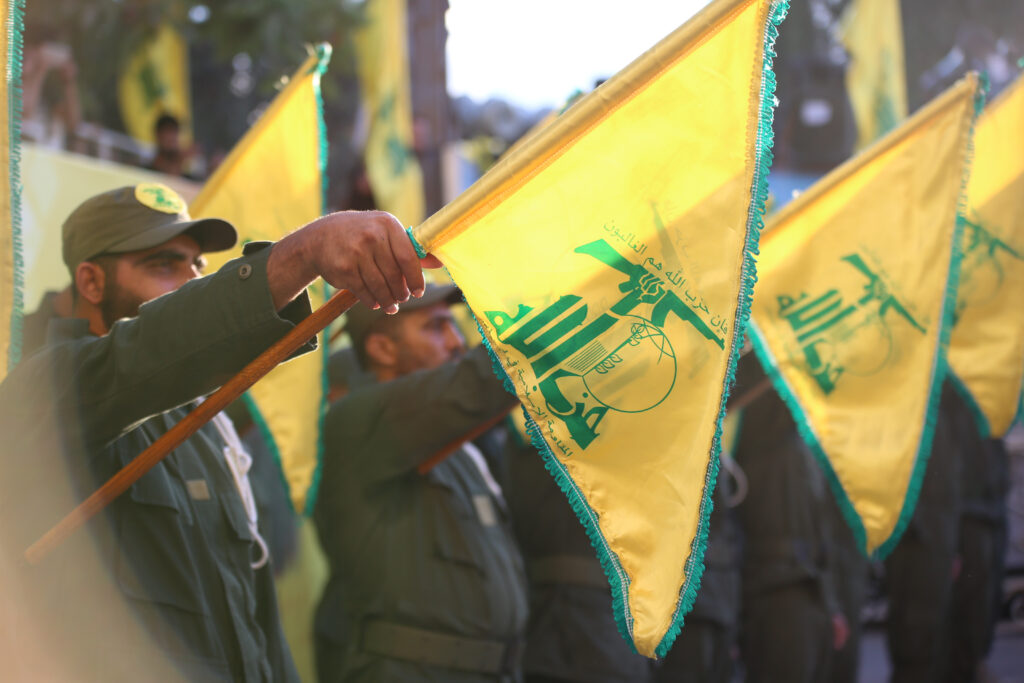
If Germany or the EU were to grant the regime certain concessions in exchange for the release of your mother and other prisoners, would that be acceptable to you?
Other families will probably hate me for saying this, but I don’t think it is right to give in to regime demands in order to get individual prisoners out of Iran. The reason is that it would go against the interests of the Iranian people. If the West pays money, it goes straight into the pockets of the Revolutionary Guards, who will in turn export their terrorism to the region or use the money against the people in Iran.
As a daughter, it is of course very difficult to give you a clear answer. I want my mother to come back home as soon as possible. Nevertheless, I don’t think it would be right for the EU or for individual countries to make deals with that regime. They should develop clear red lines, whatever these might be.
Look, I am not a politician, I am a marketing expert. If a client tells me he needs a good marketing concept, he doesn’t have to tell me how it needs to be done, it is up to me to deliver it to him. In the same way, politicians have to develop mechanisms to put a stop to the Iranian regime’s actions. I really don’t want to hear statements anymore from Josep Borrell in which he calls for the immediate release of all political prisoners in Iran before or after a meeting with the Iranian foreign minister. These are just empty words.
"I really don’t want to hear statements anymore from Josep Borrell in which he calls for the immediate release of all political prisoners in Iran. These are just empty words.."
Mariam Claren, daughter of Nahid Taghavi Tweet
Some in the EU argue that stricter measures and sanctions would only worsen the situation of the detainees and the people in Iran, that the regime could become even more radical. How do you counter this?
They have killed more than 500 people in the last six months alone, including more than 70 children. In addition, at least 22,000 protesters were arrested, over 100 death sentences handed down and four people have already been executed.
Amnesty International published a report a few days ago on how twelve-year-olds are being detained, sexually abused and tortured. The UN Special Rapporteur on Iran said in a press conference last week that these amounted to crimes against humanity.
What exactly should be even more brutal and what does it have to take so that politicians in Europe finally act? What are they afraid of? Of course, I am afraid that their actions could have repercussions on my mother’s situation and on the other political prisoners. But if a strategy has failed it must be changed.
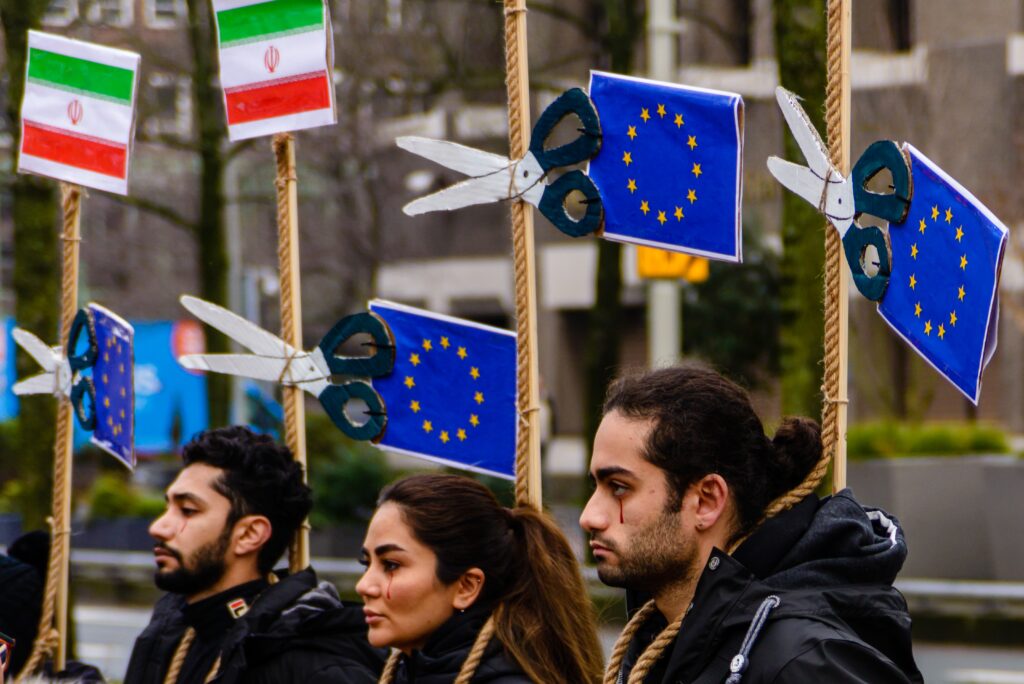
Has then the EU the will and the ability to change its strategy vis-à-vis Iran?
Let’s be clear: The current strategy has in no way led to the regime taking a step back, on the contrary: Three European citizens have been sentenced to death in Iran, they could be executed soon. We’re now talking of people being imprisoned who are not even Iranian citizens – Frenchmen, a Belgian national, etc.
Do you think there is any task force in Brussels dealing with that issue? Do you believe that they are working on it at the EU level? I don’t because there is hardly any progress, or only when they make some crazy deal with the Iranians.
Almost all European detainees in Iran are classified by the UN as arbitrary arrests. That’s what international lawyers have said. And still, nothing is happening. European countries continue to cooperate with this regime. They leave it to us, the families, to inform about the plight of our loved ones.
We have to perform the balancing act of, on the one hand, not stabbing the people of Iran in the back and, on the other, still standing by our imprisoned relatives. It is really sad!
"We have not been consulted or informed. I don't have the slightest idea what goes on behind the scenes."
Mariam Claren, daughter of Nahid Taghavi Tweet
What was the political feedback you received from Brussels or Berlin, if any?
I get a lot of solidarity, primarily at the level of parliamentarians, including from the European Parliament. But at the level of governments, at the level of those who actually negotiate with Iran, we have not been consulted or informed. I don’t have the slightest idea what goes on behind the scenes.
Mind you, I don’t blame the diplomats in Tehran or those in the German Foreign Office, I am grateful to them. What I definitely do not see is decisive action at the higher political level. There is no plan. I could live with keeping my mouth shut for the next six months if something meaningful was in the making. But I doubt there is.
The German government has never said that our citizens are political hostages in Iran. In my mother’s case, even the UN has said so, and we know that for cases of hostage-taking, a completely different legal framework applies compared with normal prisoners. But our governments here don’t want to hear that.
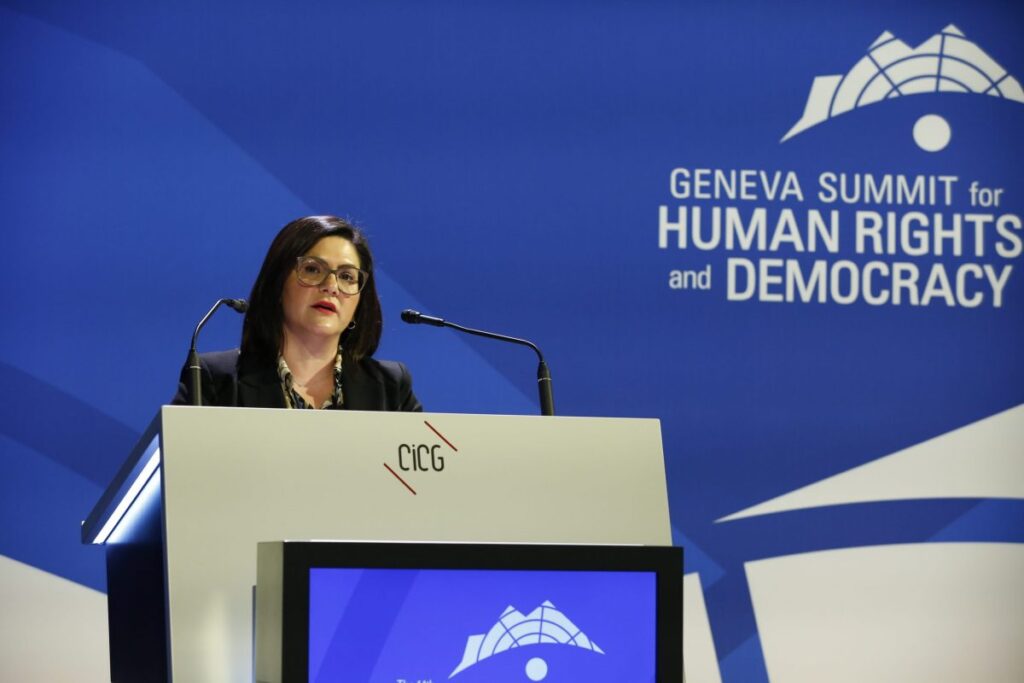
There are people who say diplomatic relations with Iran should be downgraded and Iranian ambassadors be sent home. Others want to freeze trade relations with Iran. What is your take?
A very good means of putting pressure on the regime would be through trade restrictions. If companies like Siemens, Mercedes or VW were to withdraw from Iran, that would create leverage because, at the end of the day, it’s also about money. Whether the expulsion of ambassadors or a complete diplomatic isolation would be effective, I cannot say. My fear is that in such a scenario, we would hear even less from the country and there would be even less protection for people like my mother and others.
Is there a need for regime change in Iran and if so, should it be promoted from the outside?
Change can only come from inside the country. Nevertheless, the people in Iran do need to feel that we here in Europe support them. And you don’t do that by sitting around the table with these murderers or by doing business with them! For more than six months, the people in Iran have been on the streets. They have risked their lives, not us! We need to listen to their voices.
What actions do you take to raise awareness about your mother?
Together with others, I set up a programme in which around 400 members of the Bundestag and regional parliaments can take over sponsorships of individual prisoners in Iran. This has helped to bring the issue of political prisoners to another level. Now, no one in the Bundestag can claim they know nothing about it. And last year, I spoke at the Global Human Rights and Democracy Summit in Geneva. Believe me, I never imagined that I would be invited to an event like that. I am also often asked to appear as an expert on Iran and on political prisoners.
"The people in Iran need to feel that we here in Europe support them."
Mariam Claren, daughter of Nahid Taghavi Tweet
I am very happy that I can also address the wider topic, not just my mother’s case. Luckily, I have a wonderful partner who takes very good care of me. And what also gives me a lot of strength is the cooperation with other affected families. We are very close, we exchange ideas, we stick together. But of course, I do miss the relatively quiet life I had before…
Are you in regular contact with your mother?
Yes. We talk on the phone several times a week. My mother knows that I make sure that her name is not forgotten. It is also important for me. I can make sure that she is halfway well. I try to have everyday conversations with her. We can’t talk about political things, because the conversations are intercepted. But I try to let her know that a lot of things are happening here.
The interview with Mariam Claren was conducted by Michael Thaidigsmann.
Mariam Claren is the daughter of Nahid Taghavi, a German-Iranian who has been arbitrarily imprisoned in Iran’s Evin prison since October 2020.
Her activism began after her mother, a women’s rights activist, was forcibly disappeared during a visit to Iran and sentenced to over 10 years in prison. Taghavi was arrested in an undercover raid disguised as a visit by emergency services.
Mariam Claren is a tireless campaigner on behalf of all Iran’s political prisoners.
Our most recent news
Former Estonian Foreign Minister: “We should make Russia understand that the West is not weak anymore”
In our most recent podcast edition of “EU Matters”, the Vice-Chair of the Foreign Affairs Committee of the European Parliament and former Estonian foreign minister, Urmas Paet, talks about the threat of Russia to Europe and the West’s support for Ukraine, as well as the recent developments in the Middle East between Israel and Iran.
Avital Grinberg appointed as General Manager of EU Watch
BRUSSELS – EU Watch announces the decision to appoint Avital Grinberg as the new General Manager, succeeding Michael Thaidigsmann at the helm of the organisation.
Veteran Socialist lawmaker: “We always knew that the EU would come under attack from guys like Putin”
German MEP Udo Bullmann talks about the importance of human rights in EU’s foreign policy, the EU as a player on the world stage and foreign interference in EU politics.
EU’s pivotal steps toward Ukraine, Moldova, and Georgia: A personal perspective on the region’s historic shift
Professor Cristina Vanberghen delivers her opinion on the European Council’s decision to green-light negotiation talks with Ukraine and Moldova.
EU Sets Global Standard for AI Regulation
Professor Cristina Vanberghen delivers her analysis of the EU AI Act, which regulates the use of Artificial Intelligence in the Union.
Enhancing our understanding of the EU’s role in the Middle East
Professor Cristina Vanberghen delivers her analysis on the EU’s role in mediating Middle East conflicts.
Our newsletter
Let's keep in touch!
Subscribe to our newsletter
EU Watch - Website: DIREXION Web Agency
This site is protected by reCAPTCHA and the Google Privacy Policy and Terms of Service apply.

